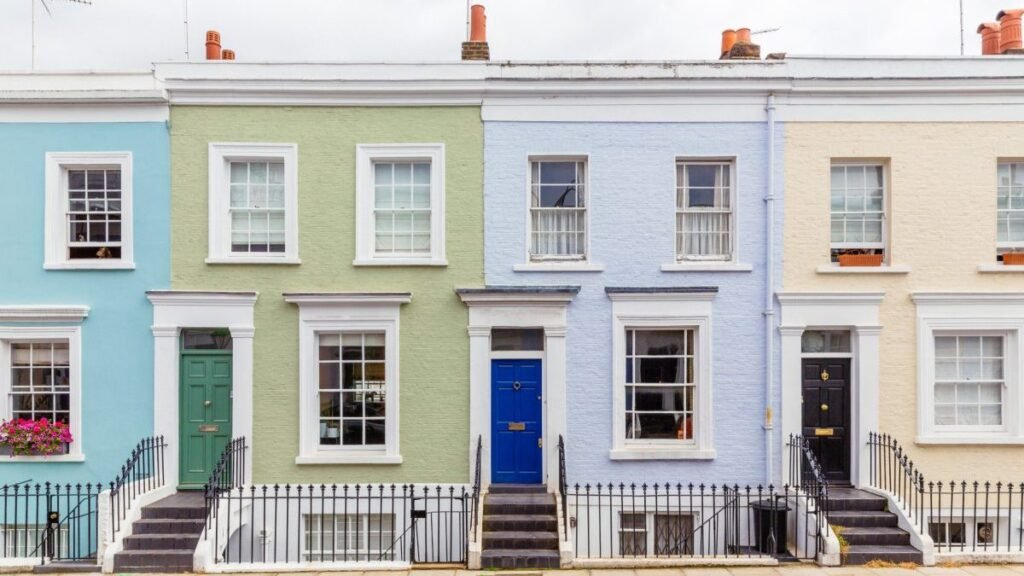The Chancellor is considering implementing a ‘mansion tax’ and scrapping council tax
Chancellor Rachel Reeves is said to be weighing a series of controversial reforms to property taxation as she seeks to address what officials say is a £40bn shortfall in the public finances.
According to reports, Treasury officials are examining options ranging from abolishing stamp duty to scrapping council tax, as well as imposing capital gains tax on the sale of high-value homes.
According to The Times, Reeves is considering ending the capital gains tax exemption that applies when people sell their primary residence in what is being dubbed a “mansion tax”.
Currently, only second homes and investment properties face capital gains tax. Removing the exemption – known as private residence relief – would represent one of the most radical changes to property taxation in decades.
While no decisions have yet been taken ahead of the Autumn Budget, each of the proposals under consideration carries political risk.
Ending capital gains tax relief on main homes
The Treasury is reportedly exploring a threshold, with homes above £1.5m most likely to be affected. Under such a plan, higher-rate taxpayers would pay 24 per cent of the gain from any increase in value, while basic rate taxpayers would face 18 per cent.
Officials estimate this could generate substantial sums. The Times reported that about 120,000 higher-rate taxpayers with properties over £1.5m could face bills averaging £199,973.
But critics warn the measure could backfire. Aneisha Beveridge, head of research at Hamptons, told the paper that the change would “hit long-term owners hardest and create a cliff-edge at £1.5m, distorting behaviour around that point.”
She argued that many headline gains reflect decades of ownership and, in some cases, do not keep pace with inflation.
Others fear it could deter older homeowners from downsizing. Simon Brown, chief executive of Landmark Information Group, warned the change “reduces overall movement in the market upwards and downwards, and not only reduces choice for families and first-time buyers, but also hits the Treasury by shrinking the tax base.”
This is not the first time a tax on high-value homes has been floated. Both the Liberal Democrats and Labour have previously toyed with a so-called “mansion tax” as a way to raise money from wealthier households, only to see the idea abandoned amid political backlash.
Who would be affected: The measure would primarily hit owners of properties worth more than £1.5m, concentrated in London and the South East. Long-term owners of family homes who have seen large paper gains over decades would be among the most exposed, while pensioners looking to downsize could also face significant tax bills.
Replacing stamp duty
Stamp duty is sometimes described as a “transaction tax” that distorts the housing market, discouraging people from moving and penalising first-time buyers.
The Guardian reported this week that officials are considering replacing it with a new national property levy, imposed when owner-occupiers sell a home valued above £500,000. Unlike stamp duty, which covers about 60 per cent of transactions, this measure would only affect around 20 per cent.
Rates would be set nationally and collected by HMRC. Importantly, second homes would continue to face the 5 per cent surcharge under the current system, but would not be liable for the new levy. This would shift the burden onto owner-occupiers selling higher-value properties.
Stamp duty raised £11.6bn last year, but revenues fluctuate with the housing market. Some officials see a proportional levy on high-value transactions as potentially more stable, though it would narrow the tax base considerably.
Who would be affected: Only a minority of households would pay the new levy, largely those selling homes above £500,000. This would capture many sellers in London and parts of the South East, while buyers in lower-value regions would benefit from the removal of stamp duty on most transactions. Owners of second homes would still face surcharges under the current system.
Scrapping council tax
Alongside the stamp duty review, ministers are also reportedly considering replacing council tax altogether.
Council tax was introduced in 1993 and remains based on property values from 1991. The Institute for Fiscal Studies has described the system as “flawed and out of date”, claiming that a house valued at £1m pays only twice as much council tax as one worth £80,000.
Tim Leunig, who wrote a 2023 report for the think tank Onward, has argued for an annual levy linked directly to property value.
Under his model, households would pay 0.44 per cent on the value of their home between £80,000 and £500,000, capped at £2,196, plus 0.54 per cent on the portion above £500,000.
For example, a family in a £650,000 property would pay £2,196 to their local authority, plus another £810 to the Treasury, totalling £3,006. Homes worth more than £1m would face an additional 0.81 per cent charge on the value above that threshold.
Unlike stamp duty, this would be an annual charge. To soften the blow, Leunig suggested it should only apply to those buying after its introduction. He wrote: “It should not be the case that a terrace house in Burnley pays more than a mansion in Kensington – and it wouldn’t be under these proposals.”
If implemented, the biggest beneficiaries would be households in cheaper regions, which often pay disproportionately high bills. But owners of expensive homes, especially in London, would face significantly higher annual costs.
Who would be affected: Households in lower-value areas, such as parts of the North and Midlands, could see bills fall sharply. Conversely, those in high-value homes – particularly in London – would pay thousands more each year. Families buying after the reform would be the first to feel the impact, while existing owners would remain under the current system.

